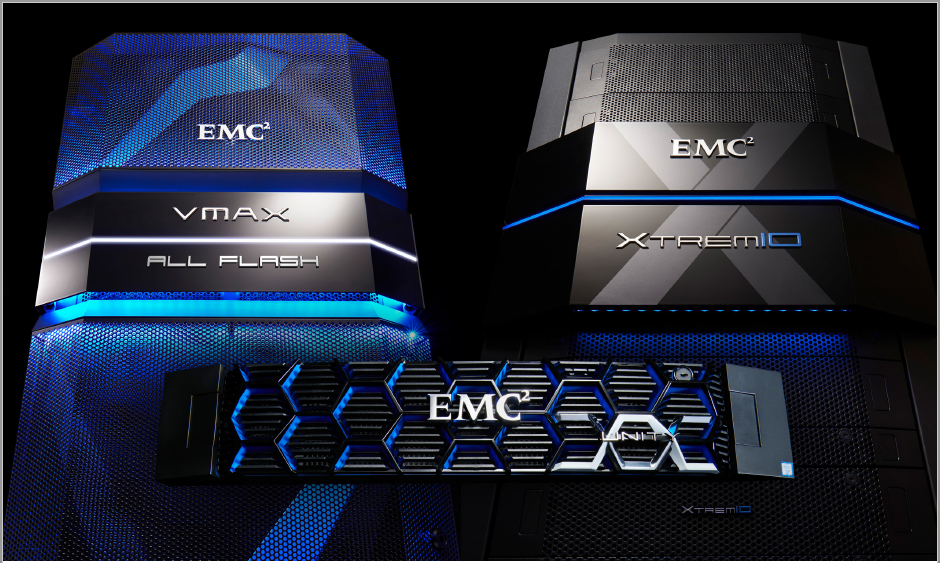All-flash storage is proving to be an important breakthrough technology for the healthcare industry. The performance and efficiency gains enabled by all-flash arrays are allowing healthcare organizations worldwide to dramatically improve patient outcomes and clinical productivity. All-flash solutions allow IT teams to address the demanding requirements of important initiatives such as evidence-based care, electronic health record (EHR) systems, big data analytics, virtual desktop infrastructure (VDI), regulatory compliance and more.

With all-flash storage as the foundation of the infrastructure, healthcare organizations can leverage efficiency, compliance, outcomes, engagement and availability in all facets of healthcare delivery. Some of the specific ways in which healthcare organizations are leveraging the benefits of all-flash storage solutions are:
- Performance: All-flash storage is necessary to enable the delivery of mission-critical healthcare at the speed of now. In healthcare, clinicians are often dealing with large data sets—for X-rays, MRIs, test results, etc., faster access to results at the point of care translates into better patient outcomes.
- Mixed workloads: All-flash storage supports mixed workload environments and application consolidation. This is particularly valuable in EHR systems, with their stringent SLAs, transactional databases and need for solutions that deliver optimum performance, maximum data reduction and the highest levels of uptime and availability.
- Analytics and reporting: Eighty percent of healthcare executives say providers who adopt an analytics strategy in the next three years will outpace their peer institutions. All-flash storage enables IT to speed the next generation of predictive analytics with the ability to link and correlate information in new ways for operational efficiencies, patient care delivery, clinical research, population health and security analytics.
- Desktop virtualization and mobility: In healthcare the success or failure of virtual desktop infrastructure requires more than managing login storms. It is judged by a strict ‘time to chart’ expectation, or the amount of time a doctor or nurse has to wait for their VDI instance of the EHR platform to pull up the patient’s treatment information. With all-flash storage, Lafayette General Health, one of the leading healthcare providers in the southern U.S., was able to reduce the time to chart in the Cerner EHR system from 45 seconds to 3 seconds.
- Virtualized applications: All-flash storage dramatically improves the performance of virtualized applications by eliminating the impact of the IO Blender Effect, which can introduce latency at the point of care. Presenting the right data at the point of care is the mission-critical business of a provider, so any latency is unacceptable.
Healthcare organizations all over the world are achieving extraordinary results from the use of all-flash storage. Here are a few examples:
Vidant Health System, the flagship healthcare system in Eastern North Carolina serving more than 1.4 million people in 70 locations across 29 counties, chose EMC XtremIO to transform its Epic EHR system and support new strategic IT initiatives. The results have been dramatic. Epic performance has improved by 20 times; SUP production nightly support runs have been reduced from seven hours to 45 minutes; latency is consistently less than one millisecond across critical care applications; and the data footprint has been reduced by a ratio of 6:1. The organization has been able to reduce costs and achieve significant savings in physical space.
Baptist Health System in central Alabama is another organization that has used flash storage to improve care through VDI. With EMC XtremIO all-flash storage, Baptist Health has been able to deliver a VDI user experience on Cerner EHR system for physicians and nurses with consistent high IOPS and sub-millisecond response times. The hospital has been able to achieve greater than 5-9’s availability; an 11:1 reduction in data for their VDI environment, and an estimated $260,000 in savings over five years leveraging XtremIO’s de-duplication, compression and snap features.
What to Look for in an All-Flash Storage Vendor
There are a lot of all-flash storage solutions on the market. In choosing the right vendor for the healthcare environment, there are several key factors to consider. These include:
- A vendor that has a broad portfolio of configurations, price points and support options to address the specific requirements of each organization
- The ability to utilize a scale-out architecture
- A solution that provides consistent and predictable performance
- Innovative features such as integrated Copy Data Management and inline data services
- Local and remote replication
- A comprehensive ecosystem, including tight integration with critical partners such as VMware, Microsoft and Oracle
- Mission-critical data protection and features to meet the challenges of clinical data security
EMC is the only vendor that meets all of the above criteria, with three leading all-flash storage platforms to choose from: EMC VMAX All Flash; EMC XtremIO all-flash storage, and EMC Unity all-flash.

Taking the Next Step
All-flash storage has become a critical technology for IT healthcare in supporting EHR, VDI and other initiatives. With all-flash storage, providers can dramatically improve quality of care and enhance the patient experience demanded of today’s Information Generation. In choosing the right partner for all-flash storage, it is important to look for vendor with a broad product line that supports all of your potential requirements. These can include a true scale-out architecture, inline data services, integrated Copy Data Management, a comprehensive partner ecosystem and support for legacy storage infrastructure.
For more information on how your healthcare organization can leverage the benefits of all-flash storage, please check out this healthcare white paper here. Learn more about EMC’s all-flash portfolio here.
